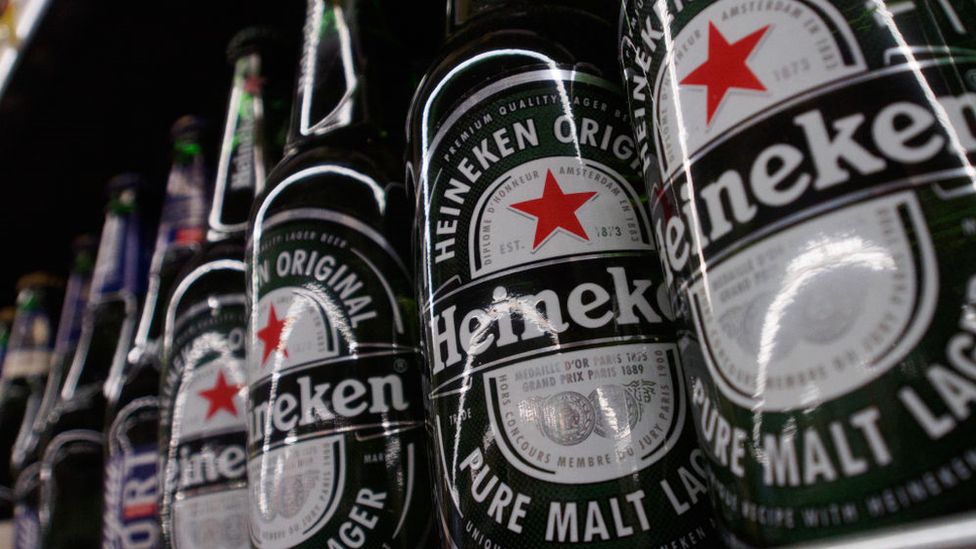Heineken has finally sold off its Russian business for €1 – or 86p – nearly a year and a half after first pledging to do so.
The Dutch brewer said it will take a loss of €300m on the division, which is being offloaded to Russia’s Arnest, which makes aerosol cans.
Many Western firms jettisoned their Russian operations when the country invaded Ukraine last February.
Heineken’s Dolf van den Brink said: “It took much longer than we had hoped.”
The chief executive and chairman added: “[But] this transaction secures the livelihoods of our employees and allows us to exit the country in a responsible manner.”
For €1, Arnest will buy seven breweries and take on 1,800 workers with guarantees to employ them for the next three years.
The manufacture of the Amstel beer brand will be phased out over six months, joining Heineken lager which the company said was removed in 2022.
“Recent developments demonstrate the significant challenges faced by large manufacturing companies in exiting Russia,” Mr van den Brink said.
Last month, President Vladimir Putin seized Russian assets owned by Carlsberg and French yoghurt-maker Danone.
Earlier this week, the franchise owner of Domino’s Pizza signalled it would shut its Russian shops and put the business into bankruptcy.
DP Eurasia said it would no longer try to sell the operation because of an “increasingly challenging environment”.
Russia has been targeted by a number of economic sanctions since its tanks rolled into Ukraine on 24 February 2022.
Many household names decided to close their operations in the immediate aftermath of the invasion. Others, such as McDonald’s and Coca-Cola, faced pressure to exit Russia.
There has also been ongoing criticism for the ones that have continued business.
Yale University’s School of Management has been tracking which firms have exited and which have stayed. Those that remain include the likes of UK telecoms firm BT Group, and Lacoste, the upmarket French sportswear brand.
Related Topics
- Companies
- Russia-Ukraine war
- Russia
- Beer
